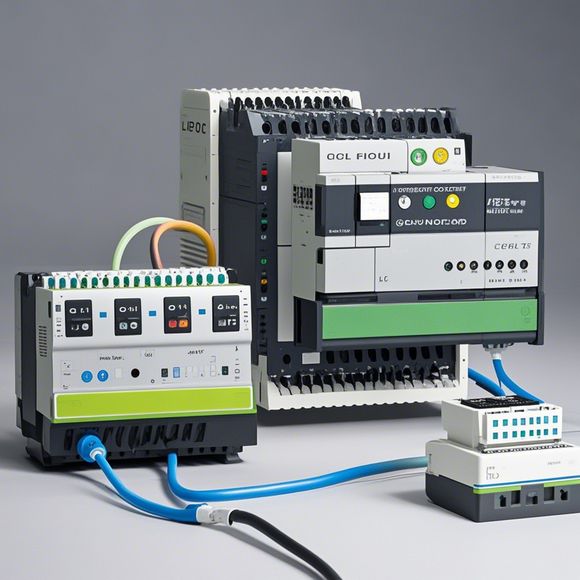PLC (Programmable Logic Controller) Modules for Automation and Control Systems
In the field of industrial automation and control systems, PLC (Programmable Logic Controller) modules play an integral role in automating and managing complex processes. These modules are designed to be programmable and can handle a wide range of tasks, from simple logic operations to complex system integrations. The key advantage of using PLC modules is their ability to adapt to changing environments and requirements, making them highly versatile and efficient for various applications. Additionally, they offer a reliable and robust solution that minimizes downtime and ensures optimal performance throughout the process. Overall, PLC modules represent a powerful tool for modern industrial settings, enabling operators to manage systems with precision and control over complex workflows.
Introduction to Plc Modules
In the world of manufacturing, automation is the backbone of efficient production. To achieve this efficiency, a plc module plays a crucial role in managing and controlling various industrial processes. These modules come with advanced features that make them ideal for use in different industries, including automotive, healthcare, and construction. In this article, we will explore the benefits of plc modules, their functions, and how they can help businesses improve their operations.
Plc Modules: What Are They?
A programmable logic controller (plc) module is a specialized electronic device that allows you to program and control a wide range of industrial processes. It consists of a microprocessor, input/output interfaces, memory, and several other components that work together to create a powerful and versatile system. The key features of a plc module include flexibility, reliability, and speed. These modules are designed to be easily programmed, allowing you to customize the behavior of your system according to your specific needs.

Why Use Plc Modules?
There are several reasons why businesses should consider using plc modules in their operations. Firstly, they offer high levels of accuracy and precision, which are necessary for many industrial processes. By using plc modules, you can reduce errors and maintain consistent results, leading to improved product quality. Secondly, these modules can save time by reducing manual labor and streamlining the process. For example, a plc module can automate parts assembly lines, reducing downtime and increasing production efficiency. Thirdly, plc modules are highly reliable and can withstand harsh environments, making them suitable for use in industrial settings where other types of electronics would fail. Finally, they can help you stay compliant with regulations and standards, ensuring that your operation is legal and secure.
Functions of Plc Modules
Plc modules are designed to perform multiple functions, including but not limited to:
1、Programmability - You can program your plc module to perform any task or sequence of tasks that fits into your manufacturing or control system. This means that you can tailor it to meet the specific requirements of your business.
2、Input/Output Functionality - These modules can handle a wide range of inputs and outputs, including analog signals and digital signals. This enables you to control devices such as sensors, motors, valves, etc., based on specific parameters.
3、Communication - Most plc modules are equipped with communication protocols such as Modbus, Profibus, and Ethernet, making it easy to connect them to other systems or devices. This allows for greater flexibility and scalability in your automation network.
4、Process Management - Plc modules can manage complex systems by providing insights into data such as temperature, pressure, flow rates, and more. This helps you identify areas for improvement and optimize the performance of your equipment.

5、Safety Features - Many modern plc modules have safety features that prevent accidents and damage during operation. These features include overload protection, fault detection, and emergency shutdown capabilities.
6、Customization - Plc modules can be customized according to your needs, including choosing the right hardware components and software configurations. This ensures that your system works seamlessly with existing equipment and meets your specific requirements.
Advantages of Plc Modules
Using plc modules has several advantages over traditional control systems. One of the main benefits is that they are highly customizable, allowing you to design your own system based on specific requirements. This means that you can avoid costly mistakes and implement solutions that are tailored to your industry. Additionally, plc modules offer increased flexibility and scalability, enabling businesses to expand and adapt quickly to changing market conditions. Furthermore, they are often less expensive than similar systems, making them an attractive option for small- to medium-sized enterprises. Lastly, plc modules offer greater accuracy and reliability compared to older technologies, ensuring that your operation runs smoothly and efficiently.
Conclusion
In conclusion, plc modules represent an essential component of today's modern manufacturing landscape. Their advanced features make them an excellent choice for businesses looking to automate their processes and improve efficiency. By understanding their benefits and functions, businesses can leverage the power of these modules to drive growth and success. So why wait? Let's embrace the power of plc modules and unlock the full potential of our manufacturing operations!
Content expansion reading:
Articles related to the knowledge points of this article:
Smart Manufacturing Solutions with PLC Integrated Machinery
PLC Controller Selection Guide for Foreign Trade Operations
The cost of a PLC Controller: A Comprehensive Analysis
PLC Programming for Automation Control in the Manufacturing Industry